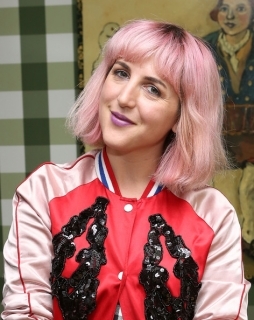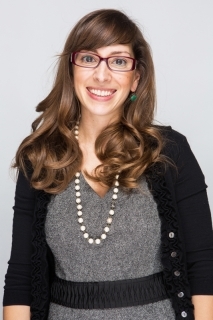Randi Zuckerberg's Blog, page 9
January 31, 2018
Radio Recap: Nailbot + NY Society of Cosmetic Chemists
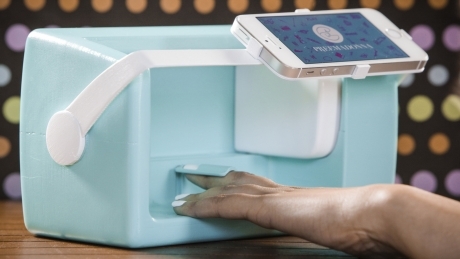
Technology has officially doubled down on the $445 billion dollar beauty industry with everything from smart mirrors to AR-enabled sites that lets customers try on a product by swiping eyeshadow or lipstick over a selfie.
The global beauty industry is currently enjoying a 5% growth from last year, with over 70% of sales growth driven by younger consumers and social media influencers. Take Lancome Cosmetics who’ve broken out beyond the brick and mortar stores and upped their sales game to Snapchat where one of the 72% of Millennials using the platform can swipe up to buy a Lancome product when they see the ad for it.
82% of women believe that social media is driving beauty trends, and men are in the beauty game too, with a $50 billion industry devoted just to their product needs alone.
Today discussing the growth of the beauty-tech industry is Pree Walia of Preemadonna and the NailBot and Colleen Daddino of The New York Society of Cosmetic Chemists.
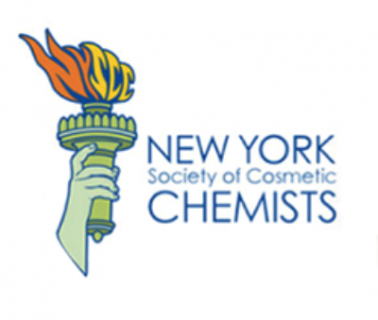
January 24, 2018
Radio Recap: Cryptocurrency +Bitcoin
 In mid-January, after a South Korean Justice Minister said the country was preparing a bill to ban Bitcoin trading, Bitcoin, Ether, Ripple, Bitcoin cash, and Litecoin all fell by between 5% and 12%.
In mid-January, after a South Korean Justice Minister said the country was preparing a bill to ban Bitcoin trading, Bitcoin, Ether, Ripple, Bitcoin cash, and Litecoin all fell by between 5% and 12%.
The South Korean minister said, ‘There are great concerns regarding virtual currencies and the justice ministry is basically preparing a bill to ban cryptocurrency trading through exchanges.’ But South Korea is one of the world’s largest markets for cryptocurrency activity, and after Bitcoin’s surge from $1000 to $19,000 at the end of 2017, just where should you stand on cryptocurrency? Should you get into the frey or stick with cold hard cash— and what’s the difference between bitcoin and Bitcoin cash anyway??
On Dot Complicated I sit down with some of the leading experts in their fields to discuss what makes their industry so dang complicated. Today I discussed why cryptocurrency is complicated. Joining me for this show were Paul Vigna and Michael Casey, authors of The Truth Machine: The Blockchain and the Future of Everything the follow-up to their best-selling book, The Age of Cryptocurrency. Also joining was Sean Worthington, digital currency creator and CEO of CloudCoin.
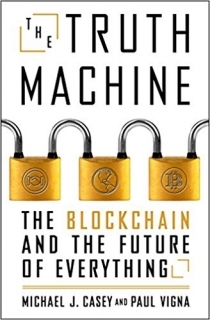
January 17, 2018
Radio Recap: Women’s Content with Lifetime TV + Swaay Media

On ‘Dot Complicated’ each episode is dedicated to a different aspect of business or tech that’s making waves. Along with those moving the needle in their respective industries, I help break down what makes these current issues so dang complicated. Today we’ll be discussing why women’s content creation is complicated. And let me tell you, from Michelle Williams getting an $80 per diem-a-day for reshoots to Mark Wahlberg’s $1.5 million, to women compromising only 18% of writers, producers, executive producers, editors, cinematographers and directors of the top-grossing 250 films of 2017— a one percent increase from 1997— this is one complicated subject.
American women watch more content onscreen across all platforms. In 2012, females 18 and older watched an average of 192 hours of video where men watched 173 hours. 89% of women’s time spent on media was via mobile.
The World Economic Forum Gender Gap Report states that the U.S. has experienced 11% growth over the last 40 years as a direct result of the increased participation of women in the economy, which has translated into $3.5 trillion. So with women as the primary breadwinners in 40% of American households, and us holding 51% of the wealth, why is creating content for women BY WOMEN still lagging?
A survey conducted on Digital Women Influences shows that since 2000, women have surpassed men in internet usage. Women represent the majority of the online market and use the top social media channels more than men in almost every network. Brands are more likely to get a response on social media from females vs. males and 54% of females will show support for a brand compared to 44% and of males, respectively. Yet out of the top 250 top-grossing films in 2017, only 8 were directed by women.
Today discussing content creation for women is Lea Goldman, Editor in Chief for LifetimeTV and FYI, and Iman Oubou, founder of the digital-lifestyle brand for business women, SWAAY Media.
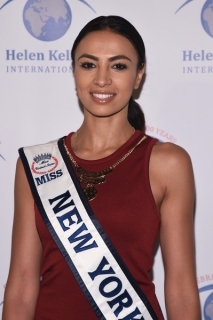
January 10, 2018
Radio Recap: Working Millennials + Adulting Collective

Millennials currently make up the largest portion of the workforce but some employers are worried that the stereotypes of the Millennial generation are true— for one: Serial job hopping. While most career experts says a person should stay in their job at least 18 months, according to a 2016 Gallup poll, 21% of Millennials left their job after less than a year and another 60% are open to it.
Another stereotype is that Millennials want the comfort of working from their home finds a U.S. Chamber Foundation study which said that a work-life balance drives the career choices of 75% of Millennials. Another stereotype? A 2016 study found American Millennials exhibit 16% more narcissism than older adults, with males scoring higher than females.
Authors William Strauss and Neil Howe, the team who coined the term ‘Millennials,’ however, believe that each generation has common characteristics that give it a specific character with four basic generational archetypes, repeating in a cycle. According to their hypothesis, they predicted Millennials will become more like the “civic-minded” G.I. Generation with a strong sense of community both local and global. So are the stereotypes true? Let’s ask the Millennials themselves. Here with me today are Julie Zeilinger, Forbes 2016 30 under 30 and creator of the feminist blog, the F Bomb, and Katie Wilson, NY State Congressional candidate for 2018.
Julie is the founder and editor of WMC FBomb (http://www.thefbomb.org), a feminist blog and community for teens and young adults who care about their rights and want to be heard, which partnered with the Women’s Media Center in 2014. Julie has been named one of the “Forbes 30 Under 30,” Newsweek’s “150 Women Who Shake The World,” one of the “Jezebel 25,” one of the “Eight most influential bloggers under 21” by Women’s Day Magazine, one of More Magazine’s “New Feminists You Need To Know,” and one of The Times of London’s “40 Bloggers Who Really Count.” She is currently She is currently an Editor at MTV News and her writing has been published on Vox, the Huffington Post, Forbes, CNN, MTV, and Mic among other publications. She is also the author of ‘College 101: A Girl’s Guide to Freshman Year’ (2014) and ‘A Little F’d Up: Why Feminism Is Not a Dirty Word’ (2012).
As a businesswoman and entrepreneur, Katie has a comprehensive understanding of the unique regional economy in the North Country, and has long advocated for small local farms and protecting the health and well-being of her community. After studying business and entrepreneurship, she left college to take over management of her family’s business – The Bark Eater Inn — in her early 20’s, running the busy inn, catering business, wedding facility and stables. Years later, as a single mother of two, Katie opened her own business, The Adirondack Attic in Keene.
Being an adult can mean knowing how to do some mundane, seriously important stuff every damn day… but we keep it light and easy. This isn’t your grandmother’s Home Ec class or your dad’s ancient accountant who doesn’t realize we need to handle our finances differently than the days you could pick up a family-sized home on a $15k/year salary. We are relevant to your life.
January 4, 2018
Radio Recap: The Travel Industry

Hopefully the Bitcoin Boom, Millennial pink everything, and smart home tech hasn’t already totally taken over your life as you ring in this fresh new year set for all kinds of digital disruption. In 2018 here’s no industry set to be more disrupted than the travel industry, which raked in over $100 million in online revenue during the 2017 summer season alone.
In December we hit the two year anniversary of the first time consumers started booking on mobile devices over desktop browsing. We’ve come a long way, baby, because technology is further disrupting the travel industry with the advancement of virtual and augmented realities, which Adobe Insights shows at least 8 of the largest hotel chains have tested some sort of VR experience to partner with mobile devices.
The battle for travel aggregators will also continue into the New Year fighting for Airbnb status, as the site was ranked the most visited accommodation site with over 90 million visits in 2017.
Discussing what’s to come for the travel industry in 2018 is Jen Rubio, the co-founder of intelligent luggage company, Away. And via phone from sunny Florida is Celebrity Cruises CEO, Lisa Lutoff-Perlo.
“People used to use cruises to disconnect. Now people want and need to be connected. We invest in the right way that people are connected in the right way.”
“We follow trends that are what our brand is known for. We’re always following culinary trends, sleep trends, spa trends. We focus on design features.”
“Part of me needs to cocoon and regenerate. The way you spend your time is about balance.”
“Game of Thrones has done so many great things for Iceland so we’re opening our cruises up there.”
“Part of what we try to do here at Celebrity Cruises is to open people up to the world.”
“The things travelers wanted couldn’t be solved in a gimmicky way. People told us their phones died. So we have an airline compliant battery to charge phones.”
“Going back to the very beginning, we wanted to do smart luggage. We looked at many features but they didn’t solve a problem.”
“We have mescal tasting and yoga classes in our brick and mortar stores.”
“Our brick and mortar store customers are people who want to try out the bag first. Plus the last minute shoppers too.”
“It was not long after we launched I saw someone going the other way with an Away bag. I never caught up to them. There were at least 8 Away bags on my recent flight to Seattle.”
“The biggest thing we learned at Warby Parker was that you can build something bigger that incorporates a community.”
“The luggage I was looking for didn’t exist so I made it with my co-founder.”
“Away came out of a personal pain point. I was traveling and my luggage broke.”
“Away exists to make travel more seamless.”
Radio Recap: Alexandra Silber
 Alexandra Silber is a Broadway singer, actress, novelist and an incredibly passionate speaker. She attended Interlochen Center for the Arts and continued her training at The Royal Conservatoire of Scotland in Glasgow, graduating with a degree in Acting just days before her professional and West End debut as Laura Fairlie in Andrew Lloyd Webber’s The Woman in White at the age of 21. Alexandra was nominated for Best Musical Theater Album as Maria in an historic, first-time concert presentation of West Side Story with the San Francisco Symphony.
Alexandra Silber is a Broadway singer, actress, novelist and an incredibly passionate speaker. She attended Interlochen Center for the Arts and continued her training at The Royal Conservatoire of Scotland in Glasgow, graduating with a degree in Acting just days before her professional and West End debut as Laura Fairlie in Andrew Lloyd Webber’s The Woman in White at the age of 21. Alexandra was nominated for Best Musical Theater Album as Maria in an historic, first-time concert presentation of West Side Story with the San Francisco Symphony.
ALEXANDER SILBER
“Technology can only enhance the human experience if we’re in touch with who we are and what we believe… otherwise we’re engaging without meaning.”
“Success is not about what you do. It’s about how you feel about what you do.”
“In the first 90 minutes of my day, I’ve gotten all of my creative chores out of the way [writing, warming up vocally], so that I spend the rest of my day ready if a door opens up.”
“Making something that didn’t exist in the world until you put it there is the reason for being alive.”
“It’s creating relationships that are business relationships and they can be monetized, but they come from someplace real.”
“If it is authentically defined, you can always tell… if it is, the consumer responds to it from an authentic place themselves.”
“I found that I wasn’t as much as a performer as I am a creative being… for me, my life purpose is about engaging with the act of innate creativity on a daily basis. I was lucky that I found that in writing.”
“There’s only two options here: there’s curl up and die… the other option was, in the face of this tragedy, to really live and have a big adventure.”
“Early success did really set me up for some tough lessons later.”
“Every human being in the world struggles with the feeling that what they have to say and offer the world is somehow not enough… whatever industry, whatever art form.”
“I had been working my whole life for when those doors opened… when that first door opened, I was ready to not just walk by storm through it. You have to be in this ever-ready position.”
“I always knew that I engaged with the world on a creative level – that I made meaning from the world through creative outlets.”
Alexandra Silber
December 22, 2017
Radio Recap: Julia Landauer +B-Wom
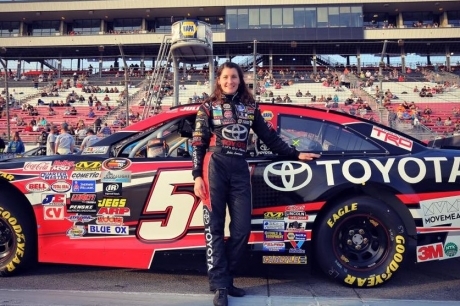
Two-time championship winning NASCAR driver, Julia Landauer, has been making history as the first and youngest female champion in the Skip Barber Racing Series since before she had a driver’s license. After becoming the first woman to win a NASCAR Track Championship at Motor Mile Speedway in her division in 2015, Julia graduated to the televised NASCAR K&N Pro Series West in 2016. In the K&N series, Julia finished 4th in the series championship, becoming the highest finishing female in the series’ 62-year history. In January of 2017, Julia was selected as an honoree for the Forbes 30 Under 30 list in the sports category. Julia is also the only female member of the highly selective NASCAR Next Class of 2016-2017.
And besides being super fast, Julia is also super smart—having earned a Bachelor of Science degree in Science, Technology, and Society from Stanford where she focused on how business and modern technology can be applied to racing and then built her brand in the middle of that intersection.
“I got my racing license at 13 and my driver’s license at 18.”
“I won my first race at 11 and got behind the wheel for the first time at 8.”
“Biology makes men and women different but these differences don’t affect racing. It’s not about brute strength. Actually women have better peripheral vision and handle heat better.”
“I’d love to be sponsored by a tampon company.”
“It’s definitely more challenging for a woman to race. You see things that other people are invisible to.”
“Racing costs money. It’s $25million to have a NASCAR. We’re getting there.”
“Racing is not an environmental sport. I went to Stanford to research how to make it more so. They have a great green energy curriculum.”
“I went to a science and math-focused high school. An Olympic fencer and chess grand master were in my school.”
B-wom is a digital coach that offers personalized women’s health programs, including recommended habits, exercises, and educational content to address health goals and concerns. It also includes a tracking tool that enables its users to see the evolution of their health. Currently they have +200k users in 10 countries.
“Silicon Valley and NYC are very exciting and fast paced entrepreneurial worlds. I try to bring a little of what I learn back to Spain when I return home.”
“I was uncomfortable at first pitching B-Wom. Now I joke I get to say ‘vagina’ to a room full of men who probably never had heard that word before.”
“There are two reactions we get in our pitch to men: 1) “I don’t want to hear this.” and 2) Men who have daughters and wives and are supportive to the cause.”
“Women’s sexual health is considered taboo. Society tells us what happens to our body is due to age but that’s not true. Incontinence, sexual pain, etc. These can be helped if you detect it early enough.”
December 12, 2017
Radio Recap: Be Fierce with Gretchen Carlson
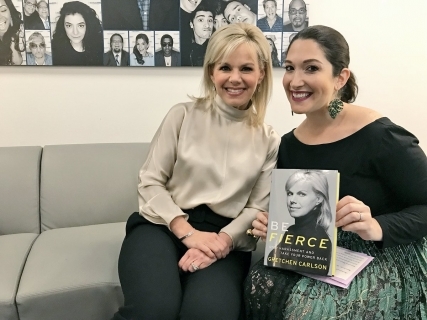 Gretchen Carlson is an acclaimed TV journalist, women’s empowerment advocate and author of Be Fierce: Stop Harassment and Take Your Power Back.
Gretchen Carlson is an acclaimed TV journalist, women’s empowerment advocate and author of Be Fierce: Stop Harassment and Take Your Power Back.
Raised in Minnesota, Gretchen Carlson started on her path to success graduating as class valedictorian of her high school. Long before her work in television, Gretchen was an award-winning violinist, even soloing with the Minnesota Orchestra when she was only in the 8th grade.
In 1988, Gretchen showcased her violin skills in the talent portion of the Miss America pageant, helping her clinch the title. She is the third Miss Minnesota ever to do so.
While studying organizational behavior at Stanford University, Gretchen went abroad for a year to Oxford University to study the works of Virginia Woolf.
Her TV career began first as a political reporter in Richmond, Virginia which brought her to anchor in Cincinnati, Cleveland and Dallas. Her move to national television started when she was the co-host of The Saturday Early Show on CBS in 2000. There she covered stories like the Timothy McVeigh execution, 9-11, and the Bush / Gore election.
In 2006, Gretchen became the permanent co-host of the number one rated cable morning show, Fox & Friends. In 2013, she hosted her own show, The Real Story with Gretchen Carlson for another three years.
But after a decade with Fox, on June 23rd 2016, Gretchen was abruptly fired—the same day her contract was up. Little did Fox know that since 2014 Gretchen had been building up a case against former Chairman and CEO of Fox News, Roger Ailes, for sexual harassment. Ailes harassment first started in 2005, but after enough was enough, Gretchen went to her supervisor in 2009 for support. To which nothing resulted except for her demotion to a lower rated time-slot.
15 days after Gretchen publically filed her suit on July 6th 2016, Roger Ailes was out of Fox and Gretchen was awarded a $20 million dollar settlement.
Today Gretchen Carlson is with me to discuss giving a voice to the voiceless, the #MeToo revolution, and Gretchen’s New York Times’ best-selling book which sparked its own Be Fierce Movement.
“I had parents who told me every single day that I could be anything I wanted to be. It’s important we tell our children that. I was never thought to be lesser so I was stymied when I got to the workplace that women weren’t paid the same as men.”
“Giving back was a huge part of my upbringing. It’s one of the most essential
“In 2019 my family’s car dealership will be 100 years old. My 77 year old mother runs the dealership now.”
“All my tenacity comes from my mom and all my emotions from my dad. I saw a father who was willing to showcase all emotions and wasn’t ashamed to be manly enough.”
“I thought I was going to be a concert violinist. I burned out. I was so intrigued by so many other things. I realized that to just do the violin wouldn’t make me happy in life.”
“My mom called me about the Miss America pageant. She said 50% of winners are based on talent. I told her she was nuts.”
“I got the bug to try television after taking the LSAT.”
“I think about saying ‘yes’ to every opportunity and long hours. Like so many young people today. You have to.”
“I remember getting paid $16,000 a year after graduating Stanford and Oxford and winning Miss America. I had no furniture.”
“Coming to a tv station as a former Miss America, I had to work incredibly hard because people would say nasty things about you.”
“You have to move cities to be promoted. I started in Virginia, then Cincinnati then Cleveland then finally to New York.”
“Everyday I was on the air I was always so glad I had that 25 years of experience. I appreciate every person that it takes to make the show happen because I’ve had every one of those jobs. It gave me a wonderful platform to appreciate the world is not just the person on the show.”
“One day my boss put a tape of me playing the violin in the Miss America pageant and told me that he wanted to see that kind of that passion on when I reported the news.”
“When my 25 year career was taken away from me and it wasn’t my choice, I thought if I don’t bring this to the forefront, who will? I did it for my children who were 11 and 13 at the time.”
“No when you see a high profile person being accused, there’s a statement apologizing right away. That was unprecedented.”
“Women are feeling so brave to say Me too, but more importantly, others are believing them.”
“I wanted to make sure my children were okay. One of the most painful things was that as a family we were supposed to California. I thought it was good for them to go and get away. So I was alone that first week when the news was swarming all over the place. I had no idea of knowing what was going to happen the next minute.”
“Social media played a huge role in Me Too. It’s given people a venue to feel safe in telling their stories.”
“The shame is being transferred from the victims to the trolls and the harassers.”
“The final solution will be when people stop being bystanders in the workplace.”
“This is about honoring all women and men who have dug deep and said Me Too. It’s trying to evoke change.”
“I’ve been lobbying in Capitol Hill. I introduced a new bill into the House.”
“Taylor Swift is one of the most famous singers in the world. She went back and sued him for $1. It wasn’t about money and fame. “How dare you try to make it my fault,” is what she said to his attorney.
“Your voice matters and standing up and speaking up about any matter that is injustice is crucial.”
“Sexual harassment is apolitical. We’re a divided country right now. Private companies can fire people. Political figures are voted into office by us. They either won’t be re-elected or they step down.”
“It’s imperative that we as a nation come together on this.”
“Arbitration clauses have doubled since 2000. 60 million Americans have them in contracts. If you have any conflicts at work you’re called into arbitration. It’s secret. If a woman’s being sexually harassed. She’s automatically thrown into secret arbitration. She can’t tell anyone while she waits for her case.”
“I started hearing stories from women around the country from every industry. Women told me they never worked in their chosen profession ever again.”
“My bill is a slender bill that gives men and women a choice—do you want to go to secret arbitration.”
“We are all giving the gift of courage one person at a time.”
“Most men want safe work environments for women. More men stopped me and wanted to shake my hand. They said, ‘thank you for helping my daughters.’ My longest chapter in Be Fierce is dedicated to men. Men want women to thrive.”
“Men need to speak up when they harassment when they see it in the workplace. A revolved joke becomes acceptable. It sets the whole tone.”
“Hire women in more top positions. Guess what doesn’t happen when women are hired in top positions? Less sexual harassment.”
“Many of the women I spoke to in Be Fierce had never even told their partners. They never saw the consequences or validations I felt from my suit.”
December 6, 2017
Radio Recap: Wanderu + Science from Scientists
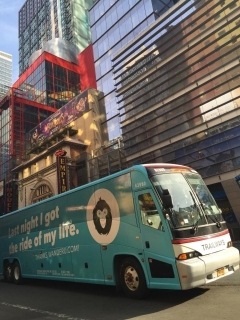 Wanderu now has more than $1 billion in partner ticket sales and generates over $100 million in annual revenue. But life for Wanderu wasn’t always this glossy. The early startup days were filled spent trying to convince transportation companies to partner with the company. Now Wanderu has investors like the former CEO of Greyhound and the former Orbitz Chairman.
Wanderu now has more than $1 billion in partner ticket sales and generates over $100 million in annual revenue. But life for Wanderu wasn’t always this glossy. The early startup days were filled spent trying to convince transportation companies to partner with the company. Now Wanderu has investors like the former CEO of Greyhound and the former Orbitz Chairman.
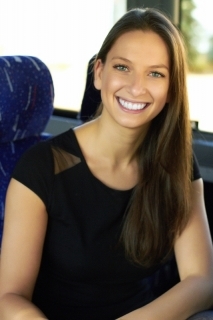 Polina Raygorodskaya is the Co-Founder and CEO of Wanderu, the leading search aggregator for bus and train travel shaking up the transportation industry.
Polina Raygorodskaya is the Co-Founder and CEO of Wanderu, the leading search aggregator for bus and train travel shaking up the transportation industry.
“I started my first company in college. It was a PR firm. I ran the firm for 6 years before Wanderu.”
“Wanderu came to me at a time of need. I didn’t have a car and trying to book train or bus travel was so daunting.”
“Mobile sites weren’t available for bus and train. It was really frustrating.”
“I went to Babson College which teaches you how to be an entrepreneur. It’s a mindset. You need to be a little bit crazy and have undying optimism.”
“Having an undying belief you’re going to succeed can be daunting.”
“When I started Wanderu it was solving the need of how to get to point A to point b. We have a routing technology that combines multiple modes of transport in just a few seconds on your phone. We simplify the entire booking process.”
“It’s discouraging to new entrepreneurs when all you see are success stories. It’s not 100% all the time. There’s a lot of failures and tough times. We’ve all gone through it. The challenges become different at different stages of the company.”
“I spent a bunch of my time combing through people who understood the industry. I knew we needed a good advisor. I wanted someone from Greyhound. I found the ex CEO of Greyhound who raised private equity money and turned the company around before they went bankrupt. I emailed around to be introduced to him. I got an email back from him, called him and he said, ‘Who the hell are you and why do you think you’re going to be the person who says they can do what you say you’re going to do?”‘
“Sometimes these bad things that happen are the best things that could happen to you.”
“There’s 3 airports in NYC but there’s probably 50-100 bus stops.It becomes infinitely more complicated when you have so many different points of pick up. Multiply that across the world and it gets exponential.”
“There’s no carrier codes at Port Authority. We had to build all the station codes and all the carrier codes. We had to calculate how long it takes to get from one stop to the other.”
“I came to the states when I was 4 years old with my parents and two brothers. They had nothing to their name. We were all stuffed in one room. My dad was a delivery driver, he didn’t speak English.My dad made enough money to afford a computer course, he got into computer engineering. And now he’s pretty high up at Verizon. I watched my family move from a poor neighborhood to a wealthy neighborhood. I watched my family make their way and become successful. What my parents went through was more difficult than anything I work on.”
“Look for a niche. What’s allowed us to be successful is by finding something relevant to a particular group of people not being serviced.”
“A lot of people are trying to solve the same problems in travel. You’re competing with companies that have billions and billions of dollars.”
“The idea of self driving technology is exciting in the travel space. The bus industry is facing a shortage of drivers. It’s a huge challenge for the industry.”
“We recently launched in Europe. We’re in over 40 different countries.”
Dr. Erika Ebbel is an MIT alumna with her PhD in biochemistry from Boston University. She’s the host of the Dr. Erika Show, an educational show for kids, she’s the Founder of Science from Scientists, which helps address the STEM workforce gap, and she’s the cofounder and CEO of biotech startup to improve gut efficacy. Oh, and she’s a former Miss Massachusetts. Please welcome Dr. Erika Ebbel to the show.
“I grew up a huge nerd. I started out doing science fairs as a child. I read ‘Jurassic Park’ and loved that book. It got me fired up about genetics. In 6th grade I took a trip to a crocodile farm, I wanted to see if cells could commit suicide if infected by viruses. I found a local lab, someone wanted to work with an 11 year old kid and was hooked on science.”
“The following year I was looking at a plant that could treat the herpes virus. As I got older I worked on the same project all throughout high school. It was this project that spurred me into biochemistry.”
“Edu-tainment, how do you get kids excited about something. Dr. Erika came out of an idea with a production company. They were looking for an interactive throwback to Bill Nye.”
“Science came alive because of the science fair projects. I taught kids math and piano at a local community club. I volunteered at hospitals. I decided to help get kids excited about science.”
“We have postings on Monster, social media, grad schools. You have to have a science degree and you have to have charisma.”
“There is definitely a stereotype that goes along with being a scientist. There’s no right or wrong way of doing it, how you portray yourself on the outside should have nothing to do with your brains. It’s okay to find that you you’re comfortable with.”
“When I first started in the pageant system there was a lot to learn. They would ask a lot of questions that were controversial and I was very opinionated. Things aren’t always black and white. I had to learn how to explain things. It forced me to take a look at what I was good at and what I wasn’t good at.”
“One of the biggest STEM gaps is in engineering. There’s not enough talent to fill the need. The problem starts early. Something sparks an interest in middle school or elementary school.”
“While I was Miss Massachusetts I’d ask who likes science, all the kids in kindergarten would raise their hands. In high school it was only a couple of boys.”
December 1, 2017
Radio Recap: Refinery29 + Leah Busque of TaskRabbit

Piera Gelardi is the Executive Creative Director of Refinery29, the digital media company aimed at women’s lifestyle. Just this year AdWeek announced Refinery29 has an audience of over 500 million globally. Congratulations!!
—
“It wasn’t a lightbulb moment but I grew up in an entrepreneurial family. Everyone in my family worked in my dad’s business. We would always come up with imaginary companies at the dinner table. It primed us to think about different aspects of business.”
“I thought I wanted to be a working artist but found I wanted to be more collaborative.”
“I got a job at an independent magazine called CITY. I learned the whole shebang. I went from intern to photo director in a couple of years.”
“I tried to launch an art magazine. It was about creative pursuits. The three of us had a similar background.”
“I met my now husband and we were living together. He and a friend came up with the original idea of Refinery29. I helped on a girlfriend consulting basis. They were looking an editor to come on board. I called my old boss and she thought it was a really amazing idea and wanted to get on board.”
“When we started we were inspired by independent boutiques that weren’t getting a lot of air time in mainstream press.”
“We built organically. Now we have 500 million people around the world interacting with our content everyday.”
“We’re working to bring the values that we put out in the world internally as well.”
“It’s a diverse group of people with different styles. We care about making an impact with women.”
“Our women’s film and comedy initiative: We champion imagination. We make sure people’s ideas are heard.”
“Everyone has a superpower you might not know. We give them an outlet to celebrate that.”
“As we’ve grown it takes a little bit more thoughtfulness to cultivate that original spirit.”
“We started almost 13 years ago without Twitter or Instagram, it was a different landscape. There was no roadmap to follow. There’s been so much change since then. We’ve had to be really nimble. It requires agility.”
“Being focused on women is a very exciting time. We’ve had to work harder. Women are continuously under-valued in the business space. We see huge market potential.”
“The Silent Rise of the Female Led Economy was a great read. Everything is designed by a man’s lens yet 80% of the purchasing economy is done by women.”
“We’re interested in the stories that aren’t being told.”
“29 Rooms reached 1 in 2 people on Instagram. We had a punching symphony. You channel your frustrations into music. Or Mother’s Womb where you sit and meditate listening to a poem about nurturing. It’s another way of storytelling. It was a funhouse meets museum to bring out the creativity of people coming through.”
Leah Busque is a former engineer turned entrepreneur as the co-founder of TaskRabbit, which was recently acquired by DIY furniture giant, the IKEA Group. Leah stepped down from her role at TaskRabbit and instead focusing on giving other entrepreneurs financing as the new General Partner of Fuel Capital, which is dedicated to giving first-time founders a VC firm they can trust.
“I started out as an engineer and got my first job as a programmer at IBM. We were a smaller startup and got acquired.”
” I had the idea for TaskRabbit when I was living in Boston. We needed to get dog food before going out for dinner. I got excited about how we could use our smartphone to connect the community to get things done.”
“I quit my job at IBM 4 months later. I participated in an incubator that Facebook was running. We were one of 25 companies asked to participate.”
“We scaled over the course of 9 years. I opened 40 markets across the company.”
“IKEA has been such a great commercial partner to us. We’ve been working with them for a while. IKEA furniture assembly is one of the major needs on TaskRabbit.”
“Fuel Capital is an early stage seed fund. It was founded 4 years ago.”
“My favorite time in the TaskRabbit was when we were under 20 employees and still so scrappy.”
“The vision and passion of other entrepreneurs captures me. Perseverance and passion.”
“Who are you, why are you here, why did you start this company? What do you want it to be? These are questions I ask.”
“I still feel like this is so new that I feel like I’m behind enemy lines as a spy. One of my biggest surprises is that there are so many reasons why an investor might not invest that has nothing to do with you. Sometimes you can take it really personally but you can’t.”
“I got passionate about going into venture to have more women, more people of color, more diversity.”
“I’m looking across industries. My background is technical so I get excited about infrastructure. But I’m a generalist. I’m a learner.”
“You have a different perspective sitting on the other side of the venture table. I didn’t know anything about raising money when I started TaskRabbit. One of my biggest regrets was that I didn’t leave IBM sooner. I think I had another company inside me before TaskRabbit.”
“When I was pitching investors and see a female general partners before me I was inspired. I hope to do the same.”
“TaskRabbit is my first born. It will always feel that way. It went through awkward teenage years to graduating college and not needing me anymore. Now it’s married and out of the house and doesn’t need me any more. I told my husband hopefully TaskRabbit has prepped us for our children as they grow up.”
“I was looking for something I could do for the next decade and beyond. I’m really excited I found it.”

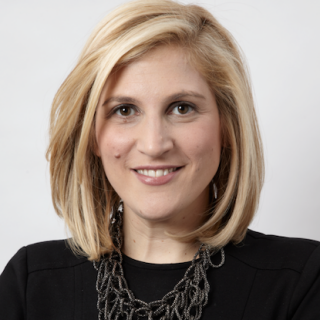

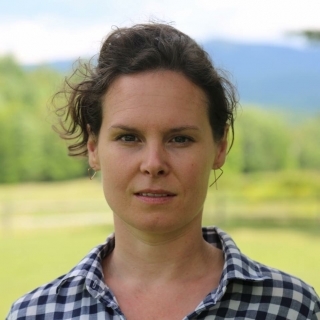

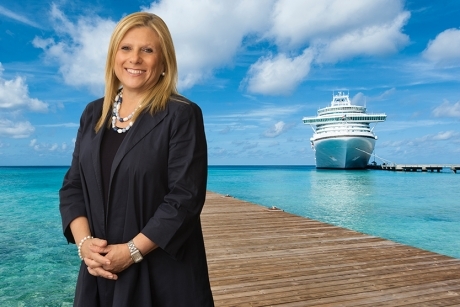 LISA LUTOFF-PERLO
LISA LUTOFF-PERLO JEN RUBIO
JEN RUBIO
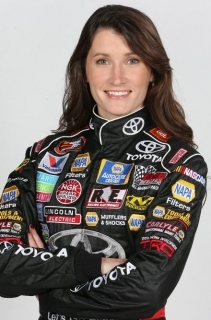 JULIA LANDAUER
JULIA LANDAUER
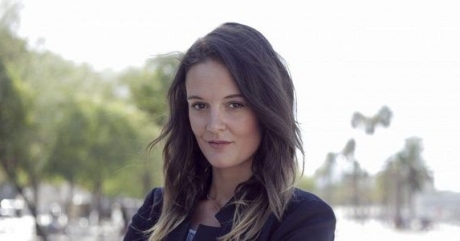
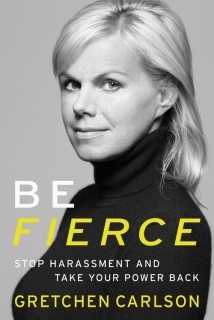
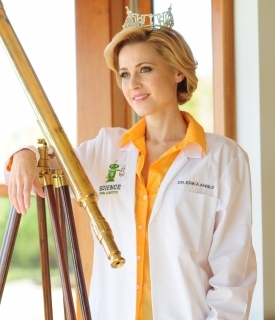 Dr. ERIKA EBBEL ANGLE
Dr. ERIKA EBBEL ANGLE